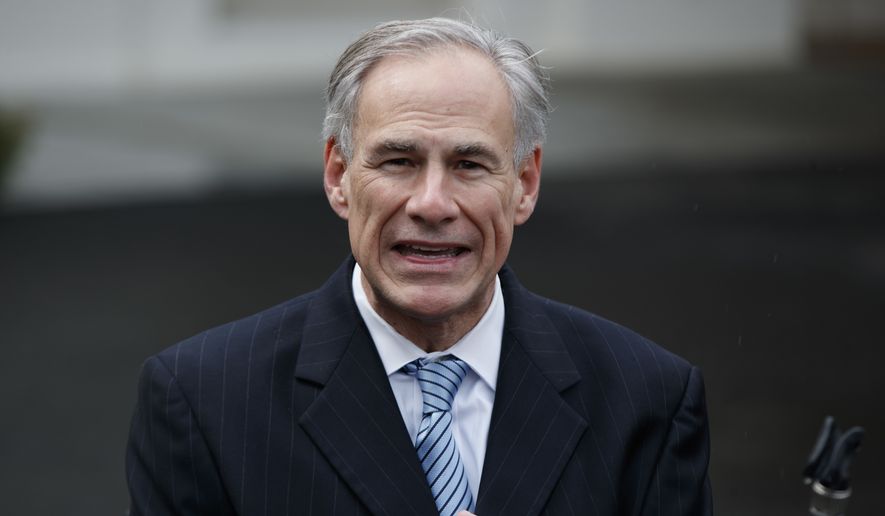Texas Gov. Greg Abbott signed the country’s toughest anti-sanctuary city law Sunday, moving not only to fine jurisdictions that refuse to cooperate with federal immigration agents but even threatening jail time for the sheriffs or police chiefs who refuse to cooperate.
Elected or appointed officials who approve sanctuary policies could be ousted from office under the new law, which takes effect Sept. 1.
The law also permits police and sheriff’s departments to inquire about the immigration status of those they stop during routine business.
“My top priority is public safety, and this bill furthers that objective by keeping dangerous criminals off our streets,” Mr. Abbott said in a statement announcing the signing.
Immigrant rights groups said they were being “terrorized” by the new law, saying it would scare both legal and illegal immigrants and make Texas less safe, because those communities will want to avoid police and thus report fewer crimes.
“Victims of domestic abuse should never have to face a choice between staying silent or getting deported. A routine traffic stop should not prevent parents from watching their children grow up,” the National Association of Latino Elected and Appointed Officials (NALEO) said last week ahead of the signing.
SEE ALSO: Greg Abbott, Texas governor, defends sanctuary city law against claims of racial profiling
NALEO’s annual conference is scheduled for Dallas next month, and the group said it plans to highlight the new law and its burdens on Hispanics.
Several illegal immigrants who have earned tentative legal status under President Obama’s 2012 amnesty lashed out, saying they detected racist motives in the new law.
“I immigrated to Fort Worth over 20 years ago with my mama. Tonight, Greg Abbott made the choice to target, incarcerate and deport millions of brown and black people from our state based on the color of our skin, our accents and where we gather,” said Sheridan Aguirre, field communications manager at United We Dream, an advocacy group for so-called Dreamers.
Sanctuaries are jurisdictions that refuse full cooperation with federal Immigration and Customs Enforcement (ICE) officers and agents who are trying to deport illegal immigrants.
Travis County, Texas, is one of the country’s most prominent sanctuary cities, and the county, dominated by the state capital of Austin, has been listed in Homeland Security’s name-and-shame list of sanctuaries. Dallas, meanwhile, has gone to court to try to limit its responsibilities for cooperating.
Sheriffs in Bexar County (San Antonio), El Paso County and Harris County (Houston) also registered their dismay after the anti-sanctuary bill cleared the state House last month, calling it “anti-immigrant grandstanding.”
Sanctuaries have become a prominent issue in recent years, thanks in large part to President Trump, who seized on them in his presidential campaign. The death of Kate Steinle at the hands of an illegal immigrant in San Francisco, a prominent sanctuary city, came just days after Mr. Trump announced his campaign in 2015.
Now in office, the president has ordered his administration to withhold funds from sanctuary cities.
San Francisco sued and won an injunction last month blocking the full extent of financial punishments Mr. Trump envisioned, though the judge in that case said the Justice Department can still withhold money from three policing grant programs.
A number of jurisdictions have responded to Mr. Trump’s presidency by announcing they would become sanctuaries.
Republicans had hoped to include language in the recent spending bill stripping more funds from sanctuary cities, but congressional Democrats said they would force a government shutdown over the matter, and the GOP backed away.
• Stephen Dinan can be reached at sdinan@washingtontimes.com.




Please read our comment policy before commenting.